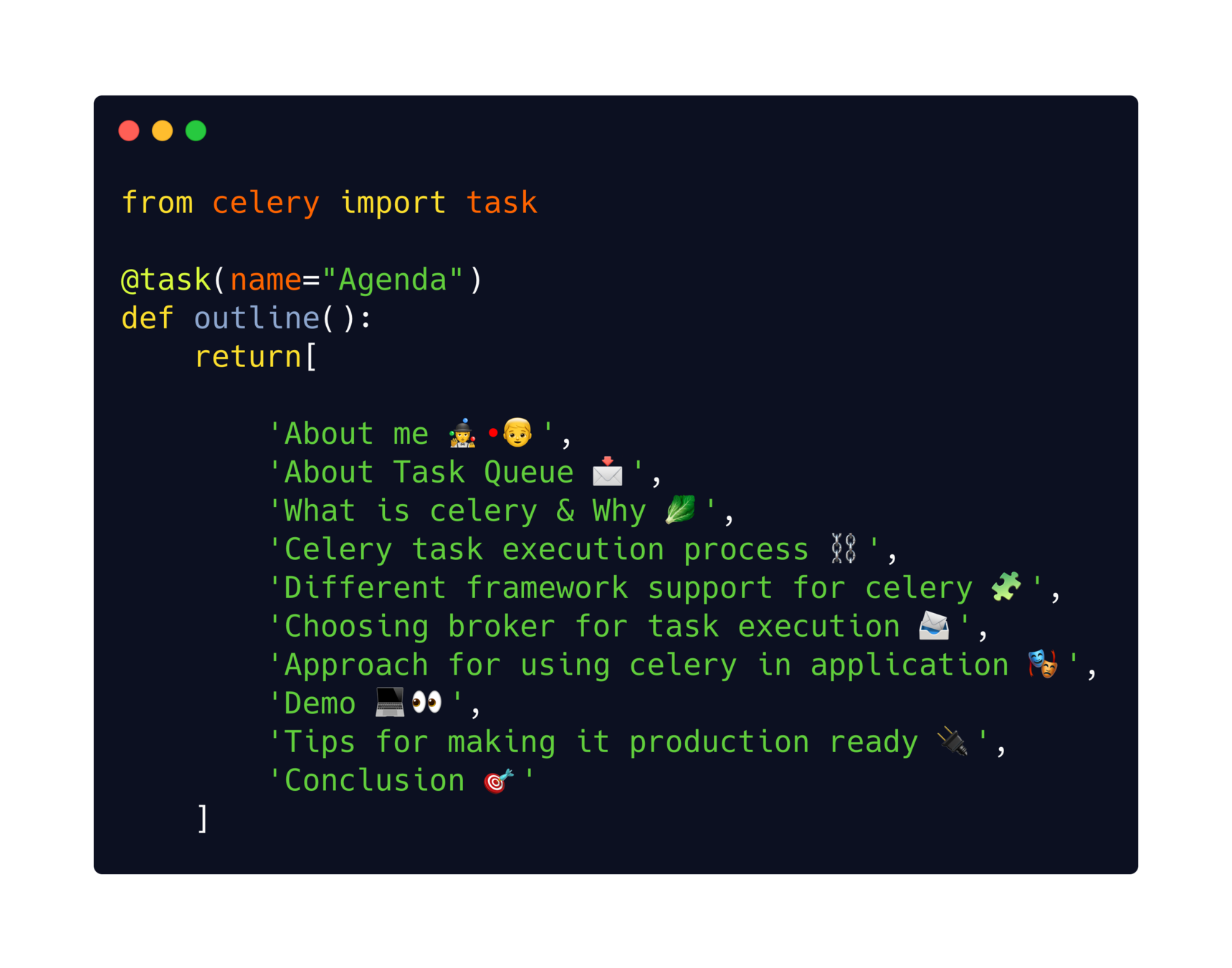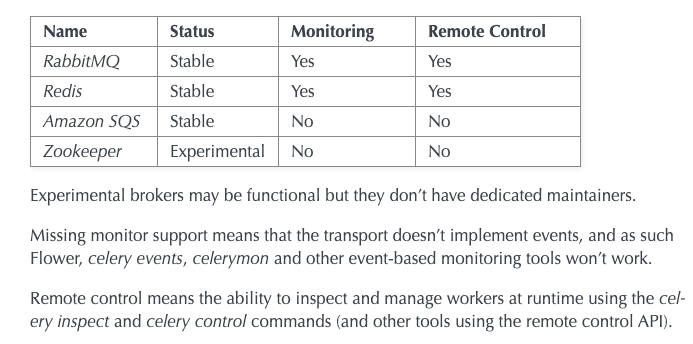
elery is digestive

@stalwartcoder



Agenda


Abhishek
👨💻 Software Eng. at Essentia SoftServ
🐍 Pythonista
👨👩👧👦 Community first person 💛

connect with me:
🚫 not "10x Engineer"

Task Queue

Task Queue
Manage background work - outside the usual HTTP request-response cycle.
For example, a web app poll the API every 10 minutes to collect the names of the top crypto currencies.
A task queue would handle invoking code to call the API, process the results and store them in a persistent DB for
later use.
Input to task queue's are a unit of work - separate code.
📬




Task Queue is a system for parallel execution of tasks.


Need of Task Queue... 🕵️
✊ Useful in certain situation.
👉 General guidelines :
- Are you using a lot of cron jobs to process data in the background?
- Does your application takes more than a few seconds to generate response?
- Do you wish you could distribute the processing of the data generated by your application among many servers?
- OR an asynchrounous DB update ?


distributes task

Broker






sends task
Client
Worker
Worker
Worker
distributes task
distributes task
WAIT!!

I’ve heard Asynchronous before!
Yes, AJAX
Some of the response time issues can be solved :
- With AJAX responses that continually enhance the initial response.
- Only if the AJAX responses also complete within a reasonable amount of time.
You need a Queue :
- Long processing times can’t be avoided in generating responses.
- You want application data to be continuously processed in the background and readily available when requested.
Different Frameworks or Projects for TQ

🔷 Huey
Blah....blahh...blaahhh


Let's talk about *celery*
Do it....

Celery is an asynchronous task queue/job queue based on distributed message passing.
It is focused on real-time operation, and scheduling as well.
Tasks can execute asynchronously (in the background) or synchronously (wait until ready).
Easy to integrate & multi broker support .
Key concept
- Message Broker
- Worker - Executors





De facto standard for Python
Why should i use it ?
🤔
it's just simple!
from celery import Celery
app = Celery('tasks', broker='pyamqp://guest@localhost//')
@app.task
def add(x, y):
return x + y>>> from tasks import add
>>> add.delay(4, 4)
<AsyncResult: 889143a6-39a2-4e52-837b-d80d33efb22d>Define task
Execute task
$ celery -A tasks worker --loglevel=infoRun the celery worker
$ pip install celeryinstall celery
- Minimize request/response cycle
- Smoother user experience
- Offload time/cpu intensive processes
- Flexibility - many points of customization
- Supports web hook, job routing
- Remote control of workers
- Logging, debugging & monitoring (Flower) support.
- Wide support of web frameworks actively developed.
- Amazing documentation and lot of tutorials!

🛠️ Framework Support







client 1
CeleryWorker 1
client 2
Broker
Task Result Storage
Task Queue 1
Task Queue 2
Task Queue N
...
send tasks
send tasks
distribute tasks
distribute tasks
get task result
store task result
store task result
Celery Architecture
CeleryWorker 2


Celery

Broker




DB for task result
RabbitMQ
Redis
AWS SQS
Selecting Broker



Finally !! 🤦♂️
Approach for using celery 👨💻
- Simple setup : single queue & single worker
- Large setup : multiple queue & dedicated worker with concurrency pattern
- Key choices :
- Broker
- Result store
More detail :

Some Tips 😬
- Start simple !
- Watch for the result .
- Monitor it !
- Consume faster than you produce.
- Try concurrency over tasks.
- Keep your task clean.
- Replace your cron jobs!
More:
Resources 📚
Conclusion 💡
- Take a slow task / function
- Decouple it from system
- Run it asynchronously
- Don't use it for everything, they are not magic wand !


